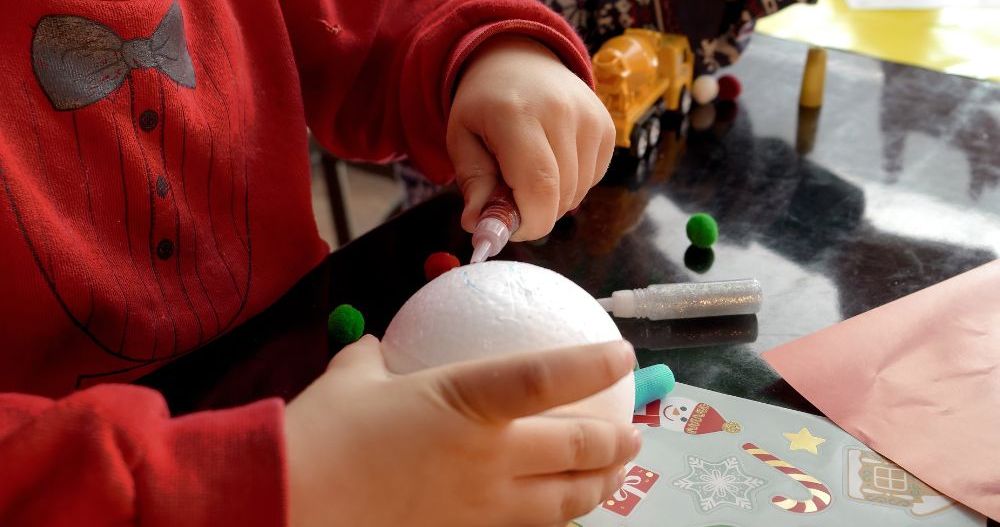min read
min read
min read
min read
There are many benefits of reading to children from an early age. Sharing stories together will spark their imaginations, develop their vocabulary and build on their listening skills.
In a world where children are growing up surrounded by technology, there is something incredibly heartwarming and grounding about reading a story together with your child.
So, by encouraging reading from a young age, not only will you be providing them with great pre-literacy skills, but you’ll also be helping with many other life skills they’ll need as they navigate through childhood.
Allow your child to fall in love with reading with these 7 tips.

1. Bring Books to Life
Parents will know that keeping the attention of little ones can be tricky, so why not try out some interactive activities to encourage reading?
Children have amazing imaginations but relating stories to real-life experiences can really capture their minds and bring the stories to life.
Take a trip to local woodlands, inspired by ‘the Gruffalo’, or go on a walk through squelchy mud, in the spirit of ‘We’re Going on a Bear Hunt’.

2. Create Time for Reading
Whether you’ve got five minutes to spare, or half an hour before bedtime, setting time aside to focus and enjoy a story together can really help foster a child’s love of literacy.
While you’re reading together, try to limit other distractions – pop phones out of the way and turn off the television.
Make a cosy space for reading, whether tucked up on the sofa with a blanket or under the duvet ready for bed - just make sure it’s light enough for them to be able to see the pictures.

3. Go on a Library Adventure
Looking at how to encourage reading without breaking the bank? Go on a library adventure!
Give your little one the opportunity to browse the bookshelves in the children’s section of your local library and choose a couple of books to take home.
Giving them the independence of choosing books for themselves will get them excited (with the added bonus of it being free!)

4. Start Reading Early
It’s never too early to start reading at home with your child, in fact, reading to your bump can get them used to the tone of your voice, which can soothe them once they’ve been born.
Although it may feel a little silly at first, it can also help grow your child’s listening skills and stimulate an interest in sounds, all while being a lovely way to bond with your baby or child.
By making reading at home with your little one the norm from an early age, your child is likely to want to continue reading as they grow.

5. Being a Reading Role Model
We understand that life is busy as a parent, and sitting down with your favourite book and a cuppa might not be possible, but children learn so much from adults, without even realising.
So, seeing you enjoying reading a newspaper, recipe books, or magazines can foster their love of reading.
Talk to them about what you’re reading, tell them what you think of it and ask them questions about what they think. As they get older, see if they can read words on the page with you!

6. Ask Questions About Their Stories
Children’s imaginations are wild! While reading with your little one, ask open-ended questions about the pictures or themes of the book.
Asking questions enhances their comprehension, after all, reading isn’t much fun for them if they don’t understand what’s going on.
Ask about how they think characters feel, which their favourite characters are or what they might do in that situation.
7. Time to Rhyme
Rhyming stories are a great way to encourage reading, without them even realising they’re doing it!
They not only support pre-literacy skills but can also help with understanding of how language works through the sounds within the words.
When you’re reading aloud, try to over-emphasise rhyming words so they can hear similarities in sounds.
Rhyming stories are a fun way of getting your child to interact, as they’ll be keen to join in and complete rhyming strings.
So, you’ve got our tips on how to encourage little ones to read, but why is sharing stories with them so important?
Expand their vocabulary – books will contain words that children are unlikely to come across in day-to-day spoken language. It’s estimated by the age of six, children should have a vocabulary of 14,000 words, which means children between 18 months and six years old will need to learn eight new words per day!
Increase their self-esteem – reading stories helps them to understand more about the world, their place in it, different relationships, and coping strategies.
Improve listening and attention skills – reading aloud promotes attention skills that your child will need to support them in other areas of learning throughout their lives.
We hope our tips for encouraging reading help you and your child! If you’re looking for other ways to keep your little ones busy, or for more tips and expert advice – check out our blog.
by
Published: 25/01/2023
Share Blog

by Busy Bees 26/01/2026
10 min read

by Busy Bees 01/12/2025
5 min read

by Busy Bees 01/12/2025
5 min read

by Busy Bees 27/11/2025
6 min read

by Busy Bees 25/11/2025
7 min read